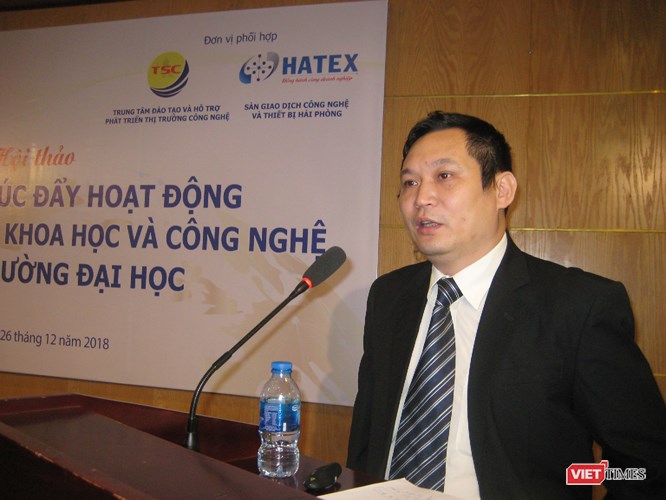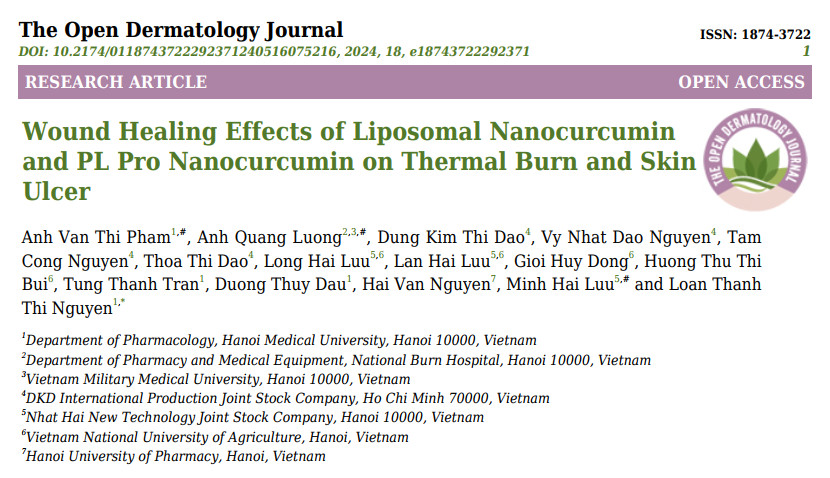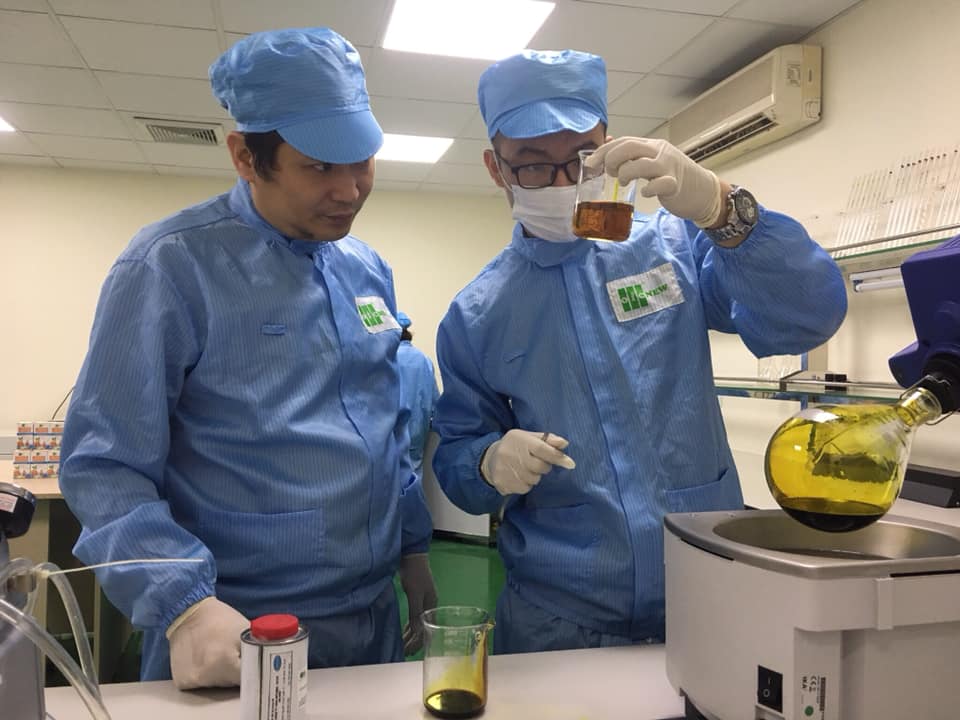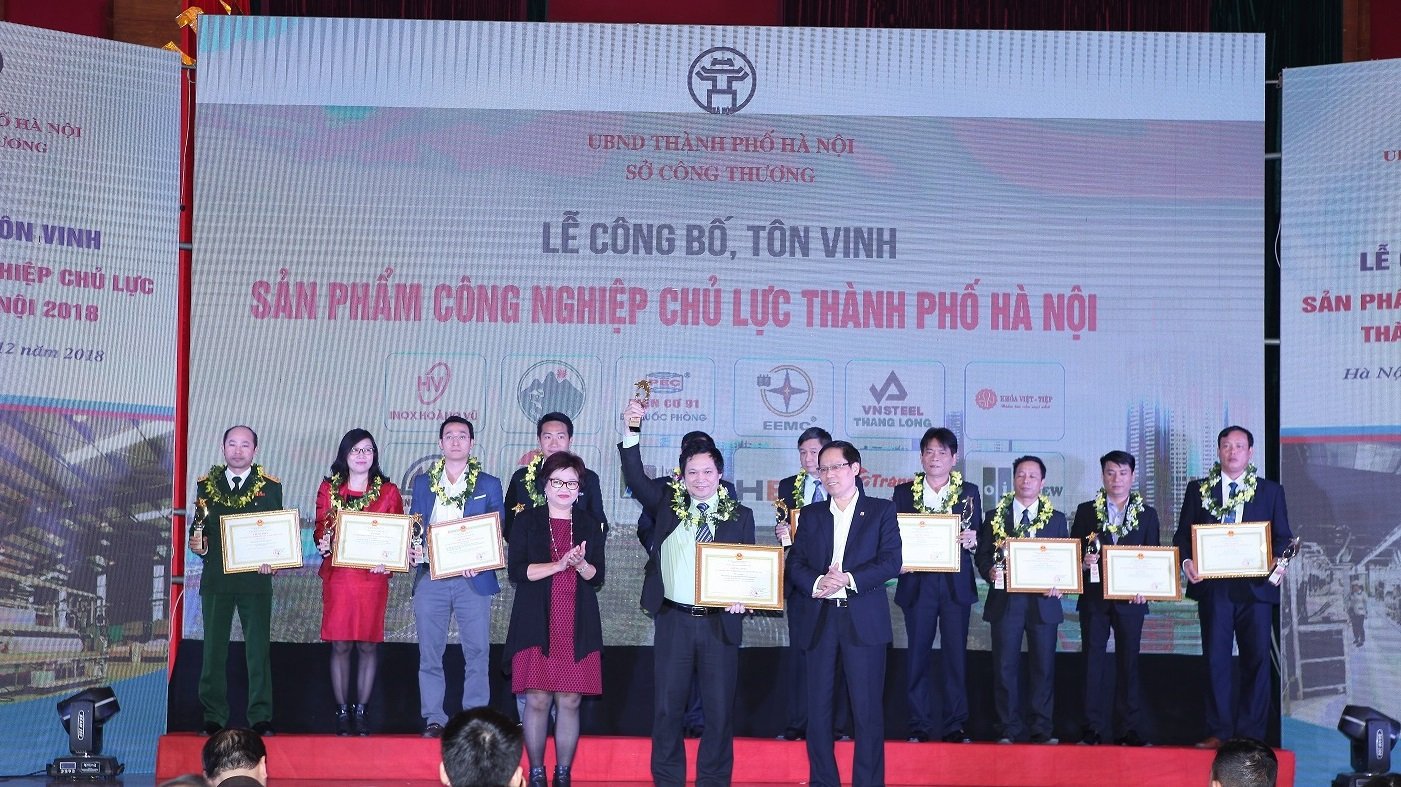In the morning of December 26, 2018, the Center for Knowledge Transfer and Support for Startups under Hanoi National University held a workshop on “Solutions to promote the connection between science and technology supply and demand in University”. The seminar was organized to clarify the need to cooperate with enterprises of the university to commercialize the results of scientific research of teachers and students.
According to Ms. Le Thi Khanh Van – Vice President of the Association of Women Intellectuals of Vietnam, difficulties in this activity are not only from schools but also with businesses because most of them do not have the habit of searching search and use information to make decisions and also be confused in proposing ideas, finding appropriate technology options to innovate production. Moreover, the majority of enterprises are only small and medium sized, lack capital, lack capacity to write projects, lack of pressure to require technological innovation, etc. Enterprises also do not have a long-term vision. strategy, there are no long-term technological innovation plans to achieve sustainable development.
As for schools and research institutes, the prolonged state subsidy has not created the motivation for creative research to meet market demand. Moreover, the research period usually lasts 1-2 years, while businesses require products in a short time. In addition, schools do not have a mechanism to encourage lecturers to cooperate with businesses. Specifically, lecturers on the government payroll are not allowed to join the board of directors of enterprises. This is not to link economic interests between science and production.
According to Ms. Van, the current legal framework is not strong enough to improve the relationship between scientific research and business. Up to now, the Government has only had one interaction channel, the order mechanism of enterprises and has not really brought into play. However, to become a strong country, science and technology must become a special resource and technological innovation must become a decisive factor to maintain the competitiveness of enterprises.
So for supply and demand to really tie together, there must be real demand. Enterprises must determine that without technological innovation, they will not be able to survive and may go bankrupt. The university considers research and technology transfer indispensable and provides financial support for further research. In particular, both sides must understand that this is a transfer of “gray matter”, so it is a close, long-term cooperation relationship with mutual relationship. Neither party can claim to be the first and the other to be the second, but it must be a balanced, mutually beneficial relationship for a successful transfer.
Mr. Luu Hai Minh – Vice Chairman of Hanoi Association of Small and Medium Enterprises, Chairman of Nhat Hai New Technology Company mentioned the fact that experts of schools and research institutes in Vietnam has only focused on writing and publishing many articles in prestigious scientific journals, but the number of officially registered researches and inventions is much less. This fact is completely against the wishes of businesses when they want to cooperate with them.
He also mentioned an unfavorable fact for businesses when investing in state-invested research projects that their investment funds are audited. This is why many businesses want money to invest in these projects. As for intellectual property, he said that it is necessary to fully train students right in the training program because this is extremely necessary.
According to him, the State should facilitate the development of relationships between universities and industries. Schools provide technology support, training, and fostering of employees for businesses, while businesses invest funds for school operations. Strengthening this relationship is the connection between supply and demand between research and application, and is a mechanism for mobilizing resources for education and training of intellectual workers.
In the discussion, it is worth noting the opinion of Mr. Pham Xuan Khanh – Rector of Hanoi High-Tech College. According to him, it would be remiss to only talk about universities in this regard without mentioning the role of vocational colleges. Colleges themselves are also responsible for scientific research, not just training skills for their students. He said that Vietnam needs to learn from the model of many countries that in the structure of lecturers, there must be researchers working in enterprises.
Summing up the workshop, Ms. Tran Thi Hong Lan – Deputy Director of the Department of Technology Application and Development (Ministry of Science and Technology) affirmed that the cooperation between schools and businesses is indispensable, especially in the field of science and technology. Industry 4.0 era. Therefore, the scientific orientation of the school must be associated with practice instead of just academic and theoretical. As for businesses, there must also be practical sharing and cooperation and cannot be too hasty with the set results.
Mr. Vuong Quoc Thang – Director of the Center for Knowledge Transfer and Support for Startups under Hanoi National University, said that in addition to promoting entrepreneurship activities among students, the Center will strengthen connections. with businesses and organizations. Instead of just commercializing the research of teachers and students, the Center has been and will actively anticipate the technological needs of businesses to place applied research requests with specific addresses in the National University. Hanoi. For that reason, forums connecting supply and demand will continue to be held regularly so that the two sides can have a common voice.
















